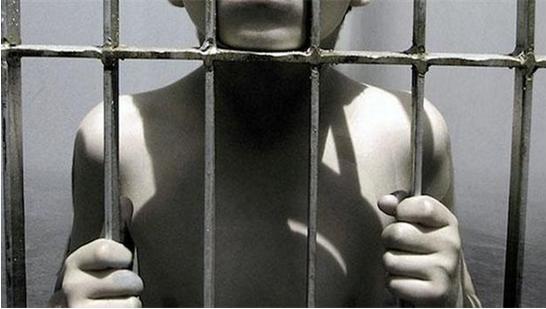Israel finished in 15th place in a ranking of 20 countries on the detention of migrant children in a study published by the Australian-based International Detention Coalition, which advocates on behalf of asylum seekers, refugees and migrants. The United States ranked the worst, in the 20th spot.
The organization gave the best marks to Brazil, which reportedly has a policy of allowing asylum seekers and their children to live in the community together while their asylum or immigration requests are being considered.
In its online summary on Israel, the organization said that migrant children can be detained on arrival in the country “but the law provides grounds for [their] release. As a result, the majority of children spend a short period of time in detention.”
Although the group said children and their families could face extended period of detention in Israel, it added: “Commendably, children seeking asylum, whether unaccompanied or with their families, are regularly released from detention.”
The organization’s list includes a mix of countries including those in Europe, Africa, the Western Hemisphere and Asia. Rounding out the best five rankings on the list behind Brazil were Ireland, Italy, Canada and Switzerland.
When it comes to Israel, the organization said, “age assessment procedures are not always accurate, and screening and processing needs to be urgently and comprehensively developed to provide better interest determinations and case management programs for all children, including those with families.”
Until 2011, Israel’s Population Authority refrained from deporting migrant women and their children, preferring instead to expel only fathers. As a result, however, the other family members generally followed them out of the country. Beginning in 2011, the authority began deporting entire families.
A 2014 report by the Association for Civil Rights in Israel, Hotline for Refugees and Migrants and the UN High Commission for Refugees quoted a mother who was in detention with her small child describing detention “in facilities that weren’t very clean and that were equipped with one closed window. It was stifling.” She complained that she did not have soap to wash her baby’s bottle or hot water for formula and that it took a long time for staff to bring it.
Responding to the study, the Hotline for Refugees and Migrants wrote: “We’re far from proud of this headline, but for us, this isn’t news. For years, we have been advocating with our partners for alternatives to detention of migrant children and families. We have successfully stopped the detention of asylum seeking children in Israel, though detention of migrant children is still an ongoing phenomenon and we continue to direct the decision makers to our policy recommendations.”
View the study online: http://next-gen-index.org/wp/en/



